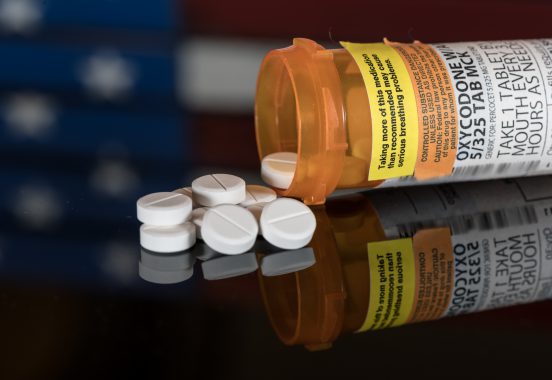CCG delays surgery in obese patients in move that ‘risks opioid dependency’

A decision by a CCG to delay operations for obese patients by six months has been heavily criticised by a leading GP who has warned it will increase opioid use and dependency.
Patients with a BMI over 30 will be required to undertake a weight management programme before they can go ahead with a range of routine surgeries, including hip and knee replacements, under new rules put in place by NHS East Riding of Yorkshire CCG.
But Dr Andrew Green, a GP in the area and the BMA’s representative on the government’s recent major review into prescribing of addictive medicines, has written to express his frustration at the ‘lack of joined up policy making’.
The review led by Public Health England warned that one in four adults were prescribed antidepressants, opioids, gabapentinoids, benzodiazepines and z-drugs in 2017/18.
It concluded the drugs should be used for the shortest possible time and in the lowest possible dose to reduce the chance of dependence.
Dr Green, who had also worked on a previous BMA review on dependency on prescription medicines, said that for arthritis patients awaiting pain-relieving surgery, any benefits of a policy to encourage them to lose weight would be outweighed by the ‘increased risk of opioid dependence that they will incur as a result of the delay’.
‘I have worked on the area of prescription drug dependence for four years now, and over that time it is clear to me that there are two priorities, a reduction in the dreadful health and social inequalities we face, and the provision of alternatives to prescribing.
‘However what we see here is a CCG unintentionally making those alternatives harder to access. It is this lack of joined-up policy-making which is so upsetting.’
Dr Green added he did have sympathies with the CCG who are under enormous financial pressure to reduce hospital activity.
But he added: ‘I have no sympathy with a government that wrings its hands about rising prescriptions but then denies the NHS the tools that are needed to make a meaningful difference.’
In a letter to local GPs, outlining his concerns over the scheme, Dr Green also pointed out that a previous analysis of the CCGs health and wellbeing programme did not demonstrate any significant impact on weight loss.
Dr Anne Jeffreys, local GP and CCG clinical chairperson said The Get Fit for Your Operation programme has been in place in East Yorkshire since 2017 for smokers and those with a BMI over 35 for patients to have the chance to quit smoking or lose weight for six months before a non-urgent operation. The decision was recently taken to reduce the BMI threshold to 30 to bring it in line with the national definition of obesity.
She said: ‘After a six-month period patients are eligible for referral to surgery irrespective of whether weight has been lost, providing they have been encouraged and supported to access a weight loss service.’
Dr Jeffreys said the area had a higher than average rate of high-dose opioid prescribing and the CCG had put in place several strategies to counter this including two specialist addiction nurses to work alongside GPs and a pain programme for managing arthritis.
She added: ‘In many cases dependence on opioid medication is not as simple as replacing a single joint and it has been shown that lifestyle changes can improve pain for many patients without the need for surgery or opioids.’
Pulse October survey
Take our July 2025 survey to potentially win £1.000 worth of tokens

Visit Pulse Reference for details on 140 symptoms, including easily searchable symptoms and categories, offering you a free platform to check symptoms and receive potential diagnoses during consultations.










